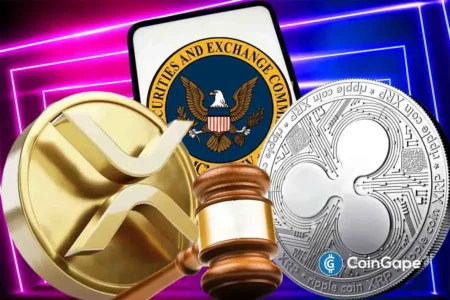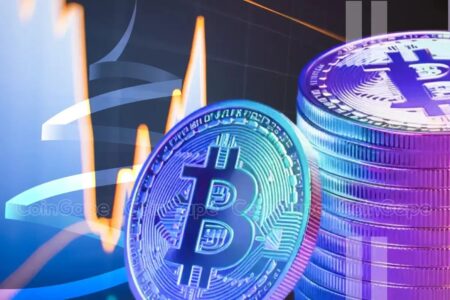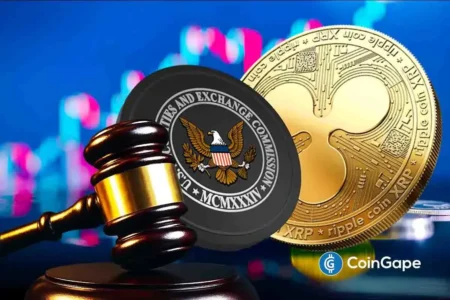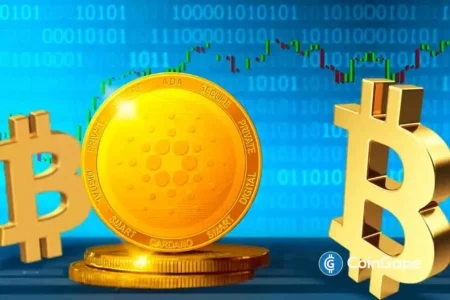Analyzing the Ripple Lawsuit: SEC Opposition and Implications for XRP
The ongoing legal battle between Ripple Labs and the U.S. Securities and Exchange Commission (SEC) has taken another turn with the SEC’s recent opposition to an emergency request submitted by Justin W. Keener. The SEC argued that Keener’s attempt to introduce what he deemed "decisive evidence" in support of Ripple is unwarranted, particularly since the case has been moved to the Second Circuit Court of Appeals. This article will explore the SEC’s position, the implications of Keener’s request, and the potential future for Ripple and XRP in the rapidly evolving cryptocurrency landscape.
SEC’s Argument Against Keener’s Emergency Request
On April 3, 2025, Justin W. Keener submitted an emergency request aimed at contributing evidence he argued would support Ripple and safeguard the "liberty of the American people." However, the SEC immediately opposed this request, informing Judge Analisa Torres that the District Court lacks jurisdiction to consider it. The agency reiterated that since the case is currently with the Second Circuit Court of Appeals, matters concerning it fall outside the purview of the District Court, as established in previous rulings, including New York v. Department of Homeland Security, 974 F.3d 210 (2d Cir. 2020). This emphasizes the legal complexities of moving cases through different judicial avenues and how jurisdictional issues can impede attempts to introduce new evidence.
Lack of Proper Procedure in Keener’s Filing
In addition to challenging the merits of Keener’s request, the SEC pointed out procedural shortcomings. Keener did not file the necessary motion to intervene in the case, which would have allowed him to submit evidence relating to the alleged unlawful conduct by Ripple and its executives. As a result, the SEC argued that even if the information Keener wished to present were relevant, it could not be considered without following proper legal channels. This argument reflects the SEC’s intent to maintain the integrity of the judicial process and ensure that only parties authorized by the court can influence the outcome of significant cases.
Ripple’s Capacity to Mount Its Defense
The SEC’s stance is also based on the assertion that Ripple, with its legal representation, is fully capable of presenting any evidence pertinent to the ongoing lawsuit without outside assistance. The SEC indicated that there is no provision that prevents Keener from directly forwarding his findings to Ripple’s defense team if he believed they were of significant value. By highlighting this point, the SEC aims to reinforce the notion that Ripple is sufficiently autonomous in its legal handling, diminishing the rationale for Keener’s involvement. The agency’s emphasis on Ripple’s agency further underscores a broader theme of self-sufficiency in legal matters, especially in the intricate landscape of cryptocurrency regulation.
Uncertainty Surrounding Keener’s Evidence
Details regarding the evidence that Keener proposed to submit remain unclear. While he alluded to possessing material that could potentially benefit Ripple and advocate for the rights of American citizens, the lack of specificity raises certain questions within the Ripple community. Speculation has emerged that the evidence could relate to investment contracts, yet no official confirmation has been provided. This vagueness surrounding the claimed evidence has led skeptics to question the legitimacy of Keener’s request, especially given the case is reportedly nearing a conclusion. The anticipation surrounding such evidence illuminates the heightened scrutiny faced by all parties involved in cryptocurrency regulatory discussions.
Impending Conclusion of the Ripple Lawsuit
The SEC’s opposition to Keener’s request comes in the context of an apparent resolution within the Ripple lawsuit. Following recent announcements, Ripple’s CEO Brad Garlinghouse confirmed that the XRP lawsuit has effectively concluded, as the SEC has chosen to drop its ongoing appeal. This development sparked optimism among cryptocurrency enthusiasts, especially considering that approximately 20 XRP exchange-traded funds (ETFs) are currently filed with the SEC. While these legal developments may lead to increased opportunities for Ripple, some market analysts note that XRP’s price reaction has been subdued, resulting in further questions about the long-term influence of the lawsuit’s conclusion on market performance.
Ripple’s Strategic Move and Future Outlook
Amid the backdrop of the ongoing lawsuit, Ripple has announced a significant acquisition—a $1.25 billion deal to acquire Hidden Road, a global multi-asset prime broker. This strategic move positions Ripple as the first crypto firm to own and operate such a platform, potentially enhancing its market presence and operational capabilities. The acquisition indicates Ripple’s commitment to expanding its influence in the financial sector, particularly as the regulatory landscape continues to evolve. As Ripple seeks to solidify its role in the cryptocurrency market, the outcomes from the Ripple lawsuit could serve as a critical stepping stone for the company, shaping its future direction amidst increasing regulatory scrutiny.
In conclusion, the Ripple lawsuit remains a pivotal moment in the cryptocurrency landscape, influencing market sentiments, regulatory approaches, and decentralization narratives. Both the SEC’s opposition to outside intervenors and Ripple’s strategic maneuvers will play key roles in shaping the future of digital assets. Understanding these developments is essential for stakeholders seeking insights into the legal and operational frameworks that will define cryptocurrency’s trajectory in the years to come.
















